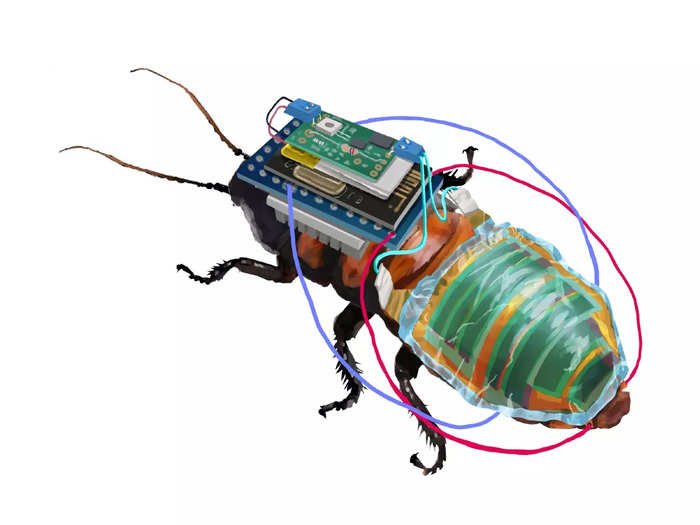BERLIN: Germany is discreetly driving a high-tech transformation in European defense. AI systems, battlefield robots, and cyborg surveillance technologies are moving from experimental labs to the front lines. Berlin is dropping decades of military restraint to rearm itself not just with tanks and troops, but also with code, chips, and swarm intelligence. This is because of Russia’s invasion of Ukraine and the rising uncertainty about U.S. security guarantees.
Germany’s defense strategy after World War II depended on pacifism, stable procurement, and protection from the United States. But there is a big change happening as Chancellor Friedrich Merz’s government plans to spend three times as much on defense by 2029, bringing the total to €162 billion. Startups like Helsing and ARX Robotics are no longer on the sidelines. They are influencing the future of combat along with older companies like Rheinmetall.

From AI on the battlefield to “spy cockroaches” that gather data in real time from risky areas, innovation is now a matter of speed and scale.
Germany is working behind the scenes to erase bureaucratic bottlenecks and rewrite procurement regulations so that new businesses can get money more quickly. The phrase “money is no longer an excuse” from Defense Minister Pistorius has sparked the start-up ecosystem. A new regulation allows advance payments and limits contracts to suppliers situated in the EU. This ends decades of American-led sourcing. Berlin wants to reach NATO’s 3.5% GDP defense goal ahead of schedule and cut down on its reliance on other countries.
The defense start-up scene in Germany is doing quite well. Between 2022 and 2024, venture money in this field almost tripled, giving rise to companies like Helsing, Quantum Systems, and Tekever. In just five years, German start-ups have already raised $1.4 billion, more than their UK and EU counterparts. Engineers from the faltering car industry are moving into battlefield R&D, creating a new military-industrial backbone based on the Mittelstand’s tradition of accuracy.
Still, there are problems ahead. The emergence of “champion firms” across Europe is being held back by fragmented military needs. Old ways of buying things sometimes favor providers that are safe. And Europe only lately started putting a lot of money into defense tech, unlike the U.S. But people’s minds are shifting quickly. The German Ministry of Defense now compares drones and AI to big changes in technology like the machine gun and the airplane. Cyber units discuss openly about how Germany is now okay with security and surveillance operations. Cyborg cockroaches from Swarm Biotactics, which are part living thing and part machine, are a representation of this new way of thinking about radical battlefield experimentation.
This rebirth of defensive technology is not only a response to conflict, but also a way to protect against a stagnant economy. Germany’s economy, which is worth $4.75 trillion, is under pressure from high energy costs and competition from around the world. As a result, military is becoming both a security need and an economic lifeline. The stakes are really high. If Germany wins, it won’t simply protect Europe; it will also set the standard for how Europe battles, comes up with new ideas, and stays alive in the 21st century.
-WNN Desk





















